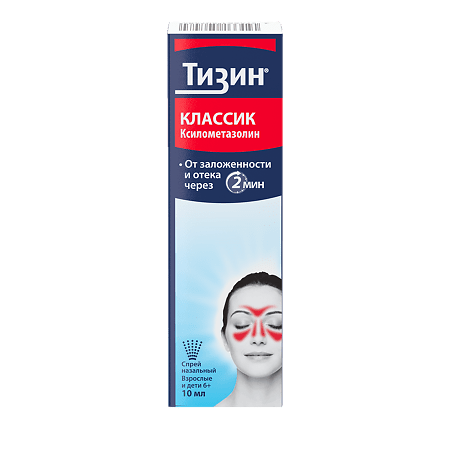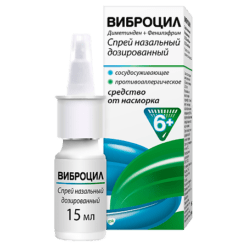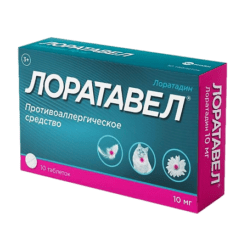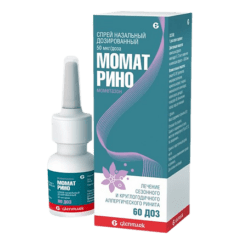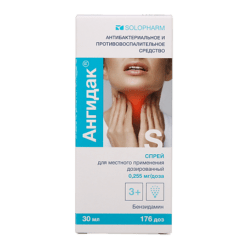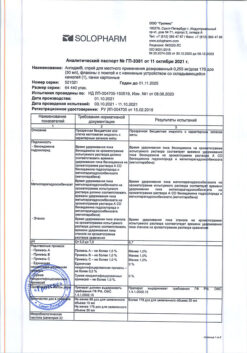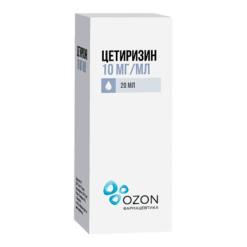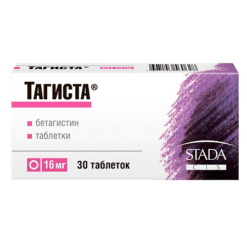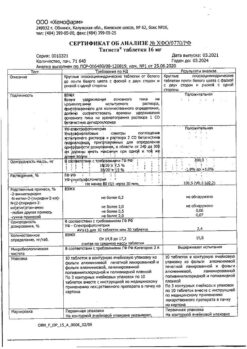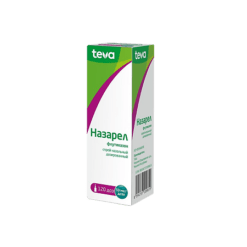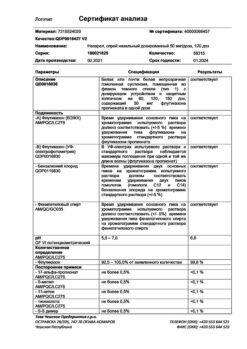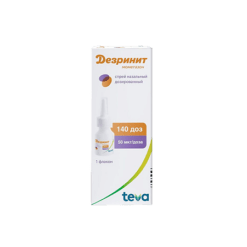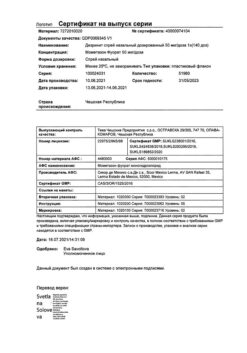No products in the cart.
Tizin Classic, 0.1% spray 10 ml
€3.67 €3.26
Description
A vasoconstrictor for local use in ENT practice.
Xylometazoline (imidazole derivative) is an alpha-adrenomimetic.
It has a vasoconstrictor effect, reduces nasal mucosal edema.
The drug facilitates nasal breathing by reducing swelling and hyperemia of the mucous membrane and also improves discharge.
The drug takes effect within 5-10 minutes.
Indications
Indications
to reduce swelling of the mucous membrane of the nasopharynx and discharge in acute allergic rhinitis, acute respiratory infections with rhinitis, sinusitis, hay fever, otitis media;
preparing patients for diagnostic manipulations in the nasal passages.
Pharmacological effect
Pharmacological effect
Vasoconstrictor drug for local use in ENT practice.
Xylometazoline (imidazole derivative) is an alpha-adrenergic agonist.
Has a vasoconstrictor effect, reduces swelling of the nasal mucosa.
The drug facilitates nasal breathing by reducing swelling and hyperemia of the mucous membrane, and also improves the discharge of secretions.
The effect of the drug occurs within 5-10 minutes.
Special instructions
Special instructions
Long-term use and overdose of sympathomimetics that have a decongestant effect can lead to reactive hyperemia of the nasal mucosa.
The rebound phenomenon can cause airway obstruction, which leads to the patient using the drug repeatedly or even continuously. This can lead to chronic swelling (rhinitis medicamentosa), and eventually even to atrophy of the nasal mucosa (ozena).
In case of chronic rhinitis, Tizin® Classic 0.05% and 0.1% can only be used under the supervision of a physician, taking into account the risk of atrophy of the nasal mucosa.
Tizin® Classic should not be used if you are hypersensitive to benzalkonium chloride, which is included in the drug as a preservative.
Do not exceed recommended doses, especially in children and the elderly.
INFLUENCE ON THE ABILITY TO DRIVE A CAR AND USE EQUIPMENT
With long-term treatment or use of Tizin® Classic in higher doses, the possibility of its systemic effect on the cardiovascular system cannot be excluded, which may impair the ability to drive and use equipment.
Active ingredient
Active ingredient
Xylometazoline
Composition
Composition
1 ml of solution contains:
active ingredient:
xylometazoline hydrochloride 1.0 mg (0.1%);
the amount of active ingredient in one dose for 0.1% is 0.14 mg of xylometazoline hydrochloride;
excipients:
benzalkonium chloride – 0.2 mg;
sorbitol 70% – 20.0 mg;
sodium chloride – 4.16 mg;
sodium dihydrogen phosphate dihydrate – 3.38 mg;
disodium hydrogen phosphate dihydrate – 2.08 mg;
disodium edetate – 1.0 mg;
purified water – sufficient quantity.
Pregnancy
Pregnancy
Xylometazoline should not be used during pregnancy, because The effects of this drug on the fetus have not been studied.
It is not known whether xylometazoline is excreted in breast milk.
Therefore, it is not recommended to prescribe the drug during breastfeeding.
Contraindications
Contraindications
Hypersensitivity to any of the components of the drug, concomitant use of monoamine oxidase inhibitors (MAO) or other drugs that can cause an increase in blood pressure; arterial hypertension, tachycardia, severe atherosclerosis, glaucoma, atrophic rhinitis, surgical interventions on the meninges (history), childhood (up to 6 years – for a dosage of 0.1%, up to 2 years – for a dosage of 0.05%).
With caution – ischemic heart disease (angina pectoris), prostatic hyperplasia, thyrotoxicosis, diabetes mellitus, pheochromocytoma, in patients with hypersensitivity to adrenergic agonists, accompanied by symptoms of insomnia and dizziness.
Side Effects
Side Effects
Tizin® Classic may cause transient mild nasal irritation (burning), paresthesia, sneezing and hypersecretion in susceptible individuals.
In some cases, after using the drug, increased swelling of the nasal mucosa (reactive hyperemia) may be observed.
Long-term or frequent use of xylometazoline or its use in high doses can lead to a burning sensation in the nose or dry mucous membrane, as well as reactive congestion with the development of drug-induced rhinitis. This effect can be observed even 5-7 days after completion of treatment, and with prolonged use it can cause irreversible damage to the mucous membrane with the formation of crusts (rhinitis sicca).
In very rare cases, headache, insomnia or fatigue, and depression may occur (with long-term use in high doses). In isolated cases, local intranasal use of sympathomimetics may be accompanied by systemic effects, such as palpitations, tachycardia, arrhythmias, increased blood pressure, and blurred vision.
Interaction
Interaction
With the simultaneous use of the drug Tizin Xylo and MAO inhibitors such as tranylcypromine and tricyclic antidepressants, an increase in blood pressure is possible.
Overdose
Overdose
Symptoms of intoxication
Overdose or accidental ingestion of the drug can lead to the following symptoms: dilated pupils, nausea, vomiting, cyanosis, fever, spasms, tachycardia, cardiac arrhythmias, collapse, cardiac arrest, hypertension, pulmonary edema, respiratory failure, mental disorders. In addition, the following symptoms may be observed: suppression of central nervous system function, accompanied by drowsiness, decreased body temperature, bradycardia, shock-like hypotension, apnea and coma.
Treatment of intoxication
The use of activated carbon, gastric lavage, artificial respiration with the introduction of oxygen. To lower blood pressure, use phentolamine 5 mg in saline solution intravenously slowly or 100 mg orally.
Vasopressor drugs are contraindicated. If necessary, antipyretic and anticonvulsants are used.
Storage conditions
Storage conditions
Store at a temperature not exceeding 25°C. Keep out of the reach of children.
Shelf life
Shelf life
3 years.
Manufacturer
Manufacturer
Delpharm Orleans, France
Additional information
| Shelf life | 3 years. |
|---|---|
| Conditions of storage | Store at a temperature not exceeding 25°C. Keep out of reach of children. |
| Manufacturer | Delpharm Orleans, France |
| Medication form | nasal spray |
| Brand | Delpharm Orleans |
Related products
Buy Tizin Classic, 0.1% spray 10 ml with delivery to USA, UK, Europe and over 120 other countries.

